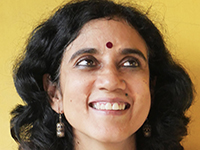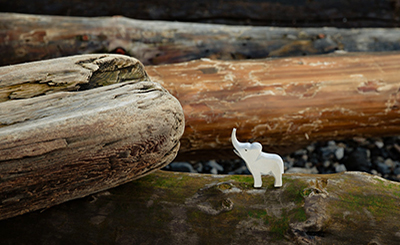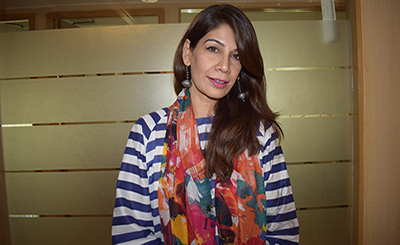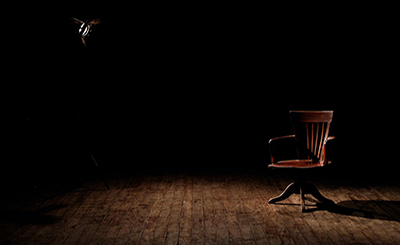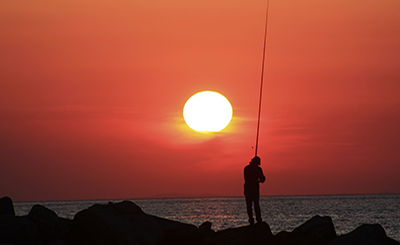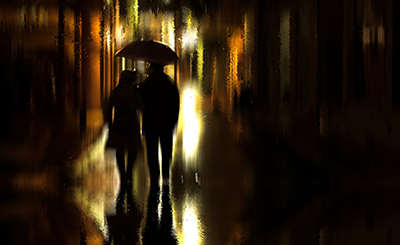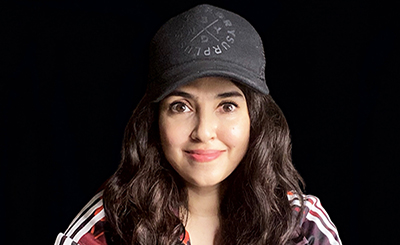
‘I prefer the small brush stroke over the broad sweep’
It is the ambiguities inherent in lived experience, the grey areas, the moments of not knowing that fascinate me. I prefer the small brush stroke over the broad sweep, the embodied self over the abstract idea, particularities over a grand narrative. I think of my poems as archives, as witnesses to loss, grief, joy and light, as a way not to forget. Though I have experimented with a range of forms, free verse remains my preferred form. Part of this, I suspect, is because free verse lends itself readily to storytelling, wrapping its contours over where ever the human story takes one. Lines breaks in free verse are intuited and follow the breath. Oftentimes, they appear quixotic, their logic not immediately apparent. I enjoy the go-with-the-flow nature of free verse and what it enables.
I recently stepped away my from my day job as a professor of English. The reason I did so is that the way academia is currently set up is that there is no space for intuitive discoveries, for serendipity, for heart-knowing — strangely enough not even in literary studies. I think it is Mary Oliver who said that just as athletes preserve their bodies so they can perform better, writers too should take care of their sensibilities, they should protect them. I think that is very true.
How does one think when one is writing a poem? Sometimes, one starts with an image or with a word — something floats into your consciousness — so it is important to keep that consciousness open so things can “float” into it. It can be the tiniest thing — something that seems insignificant almost but which the poet makes meaning from, connecting this to something else and then to another thing — in a sort of chain of associations. Associative thinking, lateral thinking is the most precious thing there is. Routine, linear thought, the idea that somethings are more important than others, mindless busy-work, anything that deadens the spirit is anathema to the poet.
To see the possibilities in everything, to make the connection between a walk in closet where you can hang up your clothes and the arms of a mother who is thinking of what she might bequeath her son, to give form and shape to the spirit that looks after us, to understand the nuances of intimate relationships, to work closely with images, to see them as important, to recognize the cadences and the music of words — words from any language that you encounter — is important. Poets must be mindful about whatever is in front of them. If it is a tree that stands before you, then you must learn to see the tree fully. And if what you find standing before you is a difficult feeling or a situation that you are trying to process, then it makes sense to be mindful of that, to try and uncover that through your writing. The key is to write about what matters.
Mother and Daughter
We have been in this for years,
the two of us,
our grief a large feather down quilt
under which we snuggle,
accomplices who learnt early
that settling into it was better.
We were the ones who stayed home with it,
kept the wake,
our loyalty that of the abandoned,
its fierceness a daily vigil.
The deadness grew slowly.
It sits now in our wombs.
We hearken to its quickening,
even though we know
that birthing is beyond us.
Bequeathing
I stand here, after you are gone,
folding the last of your clothes from the laundry,
the ones you wore before the long train took you
to this alien geography where you now sleep and wake,
a city without a sea.
Your leaving — I don’t have to say it — is a temporary death.
I stand here, after you are gone,
folding the last of your clothes from the laundry,
turning the pockets inside out,
wanting to leave notes inside each of them
for you to read after I am gone,
for that going too is round the corner.
And my notes will say:
Don’t weep,
for I am leaving you
what you will need for the road:
a copy of my eyes to gaze through other windows,
the strange idea that words are important,
that they may yet save some worlds.
I am leaving you the feel of my arms
open like a closet you can walk into
and hang your shirts,
easy and unfolded.
A Book of Blank Pages
You hand me a book of blank pages
and say that in it is your poem
about numbness.
Friend, should you choose
to dip into the ink well
of all the places you are hurting,
your poem will flow riverine,
through book spine.
Speaking to that Someone Who I know is Walking With Me
Let me take this slow, I say,
slow like Mahler-slow,
scream
when I get to it.
Maybe there will be a bridge after all
and no reason to scream.
But you take me in hand
in that quiet way of yours
and before I know it
I have taken the plunge.
Picking Locks
It’s funny how
some boxes come to you locked,
their keys, it appears, were never made.
Try opening them
and it’s bits of you that get stuck.
The key is to pick your own lock first,
someone tells you.
And so you spend night after thieving night on it,
this box that’s you with no keys.
Winter. Spring. Summer…
You are still at it.
The essay and the poems are part of our Poetry Special Issue (January 2022), curated by Shireen Quadri. © The Punch Magazine. No part of this essay or the poems exclusively featured here should be reproduced anywhere without the prior permission of The Punch Magazine.
More from The Byword
Comments
*Comments will be moderated



